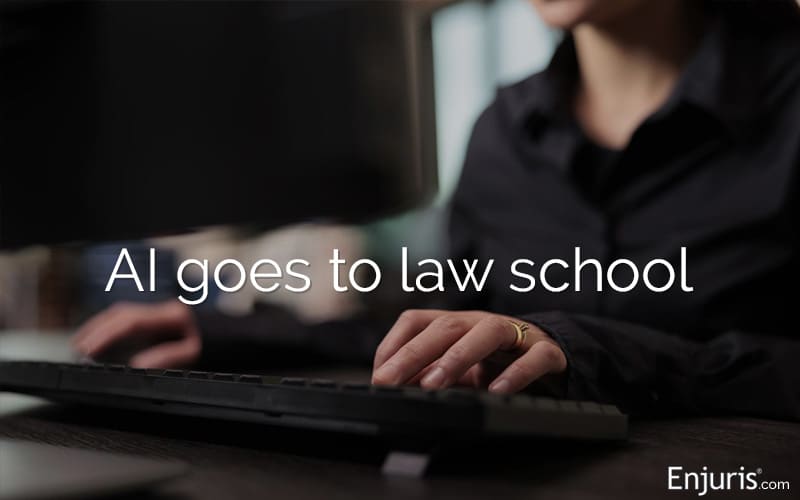
Artificial intelligence (AI) is rapidly challenging the status quo in all sorts of industries, and the law—often late to the party—is no exception.
Recently, the Sandra Day O’Connor College of Law at Arizona State University (ASU) made the noteworthy decision to allow prospective law students to leverage generative AI tools in their applications. This decision provides an interesting counterpoint to the University of Michigan Law School’s recent choice to ban AI tools in student applications.
What ASU law school decided
The Sandra Day O’Connor College of Law at Arizona State University announced that prospective students are allowed to use generative AI tools to help draft their applications.
“Our law school is driven by an innovative mindset,” said Dean and Regents Professor Stacy Leeds in a press release. “By embracing emerging technologies, and teaching students the ethical responsibilities associated with technology, we will enhance legal education and break down barriers that may exist for prospective students.”
The law school explained that some applicants pay consultants for help with their personal statement and that generative AI will help level the playing field because it’s available regardless of an applicant’s economic situation.
There will, however, be conditions. According to Stacy Leeds, each applicant will have to verify their application is true, accurate, and complete. What’s more, applicants will need to certify their use of AI, an extension of the school’s pre-existing requirement that prospective students certify their use of professional consultants.
Different schools take different approaches to AI
Not all law schools are embracing AI. The University of Michigan Law School strictly prohibits using tools like ChatGPT for their applications.
Other schools have taken more of a hybrid approach. For example, the University of California, Berkeley School of Law was the first to roll out a formal policy on the use of AI, which allows its use for research and grammar checks but forbids it from being used on exams. The school has decided not to specifically ban AI from the application process for the time being.
“We felt that the requirement to attest to the fact that ‘all essays and statements are my original work’ covers the use of generative AI such as ChatGPT in a way we are comfortable with for the time being,” said assistant dean of admissions Kristin Theis-Alvarez.
What does this mean for prospective students?
ASU Law School emphasizes that while AI can assist students during the application process, it must not be employed to create misleading information. The primary goal is for students to present their authentic and unique narratives.
It's important for law school applicants to recognize that policies regarding AI usage in the admissions process vary among institutions. Thus, applicants should consult individual schools prior to incorporating AI assistance.
Future role of AI in legal education
According to the press release, one of the reasons ASU is embracing AI in its admissions process is its recognition that AI will be a part of the legal field going forward. As AI becomes an integral part of legal research, case management, and other facets of the practice, it’s only logical that the role of AI in legal education evolves too.
However, as with all tools, the emphasis should be on ethical and effective usage. While AI can streamline certain processes, the essence of law—understanding human narratives, empathy, and ethical judgment—remains intrinsically human.
Furthermore, law firms have frequently encountered the limitations of ChatGPT, sometimes to their public embarrassment.
To the aspiring law students out there, while AI might be a tool in your arsenal, remember that your unique voice, experiences, and perspectives are irreplaceable. In the vast landscape of legal education and practice, that remains your most potent asset.
Looking for more information about the law school application process? Here are some resources that may help:
